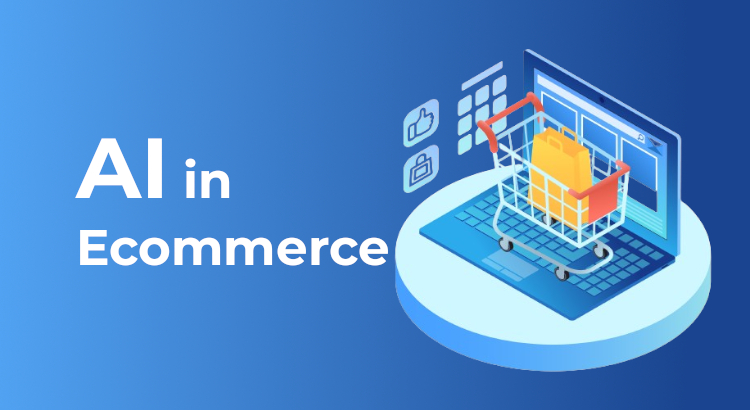The rapid advancement of technology has significantly transformed the landscape of ecommerce, and one of the key players in this evolution is Artificial Intelligence (AI). AI brings unprecedented capabilities to enhance customer experiences, streamline operations, and optimize decision-making processes in the dynamic world of online retail.
What Is AI?
Artificial intelligence is the simulation of human intellect in computers that have been designed with human-like thought and learning processes.
It encompasses various technologies such as machine learning, natural language processing, and computer vision, collectively enabling machines to perform tasks that traditionally required human intelligence.
Benefits of AI in Ecommerce
The role of AI in ecommerce is listed below.
1. Voice Commerce and Virtual Assistants
Voice-activated interactions and virtual assistants enhance user convenience, allowing seamless shopping experiences and hands-free transactions in the world of e-commerce.
2. Smart Search
AI-driven smart search engines provide accurate and personalized results, enabling customers to find products quickly and efficiently, enhancing their overall shopping journey.
3. Personalization
AI analyzes user data to deliver personalized recommendations, emails, and promotions, creating a tailored shopping experience that resonates with individual preferences and behaviors.
4. Automation
Automating repetitive tasks like order processing and inventory management improves operational efficiency, reduces errors, and allows businesses to focus on strategic aspects of e-commerce.
5. Remarketing to Potential Prospects
AI algorithms analyze user behavior, facilitating targeted ads and personalized content, increasing the chances of reconnecting with potential customers and driving conversions.
6. Improved Fraud Detection
AI enhances security measures by continuously monitoring and analyzing transactions, swiftly detecting anomalies and preventing fraudulent activities, safeguarding both businesses and customers.
Related Article: Pros And Cons of AI (Artificial Intelligence)
AI In Ecommerce Examples
- Chatbots: Providing intelligent, 24/7 customer support through automated conversations.
Useful Article: AI-Powered Chatbots: Transforming Customer Engagement in Online Businesses
- CRM (Customer Relationship Management): Machine learning predicts buyer behavior, facilitating more accurate customer scoring and personalized interactions.
Learn More: What Is CRM? Meaning + Marketing Benefits
- IoT (Internet of Things): Digitizing retail operations through data collection, allowing for improved inventory management and customer insights.
- AI in sales: Automating sales processes to provide deeper insights into customer preferences and behaviors.
- Product content management and image search: AI assists in creating and updating product descriptions, and enables image-based searches for enhanced user experience.
- Customer service: AI handles routine queries, freeing up human agents to focus on more complex customer issues.
AI In Ecommerce Challenges
1. Privacy and Security
The use of AI raises concerns about the protection of customer data and potential security vulnerabilities in e-commerce systems.
2. Lack of Human Input
Overreliance on AI may result in a loss of the human touch, affecting customer interactions and satisfaction.
3. Ethical Issues
Addressing ethical concerns arises in AI decision-making processes, including biases, fairness, and responsible use of technology in e-commerce.
4. Adoption Issues
Resistance to AI adoption due to factors such as unfamiliarity, cost, and concerns about potential job displacement in the e-commerce industry.
5. Accuracy Problems
Ensuring the precision and reliability of AI algorithms is critical to prevent errors in decision-making processes within e-commerce operations.
Future of AI in Ecommerce
The future of AI in ecommerce holds tremendous potential for further innovation. Continued advancements in AI technologies are likely to lead to more sophisticated personalization, improved automation, and enhanced customer engagement, shaping the future of online retail.
Conclusion of AI In Ecommerce
As AI continues to evolve, its integration into the e-commerce landscape brings both opportunities and challenges. Striking the right balance between leveraging the benefits of AI and addressing potential drawbacks will be crucial for ensuring a sustainable and thriving future for AI in ecommerce.
Image by katemangostar on Freepik


